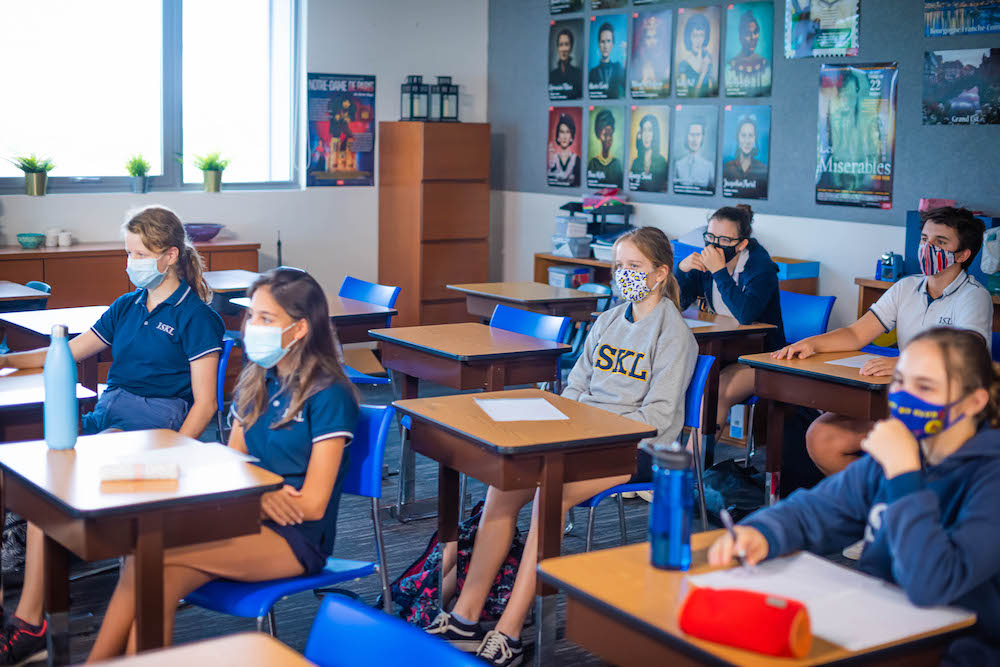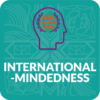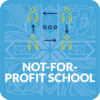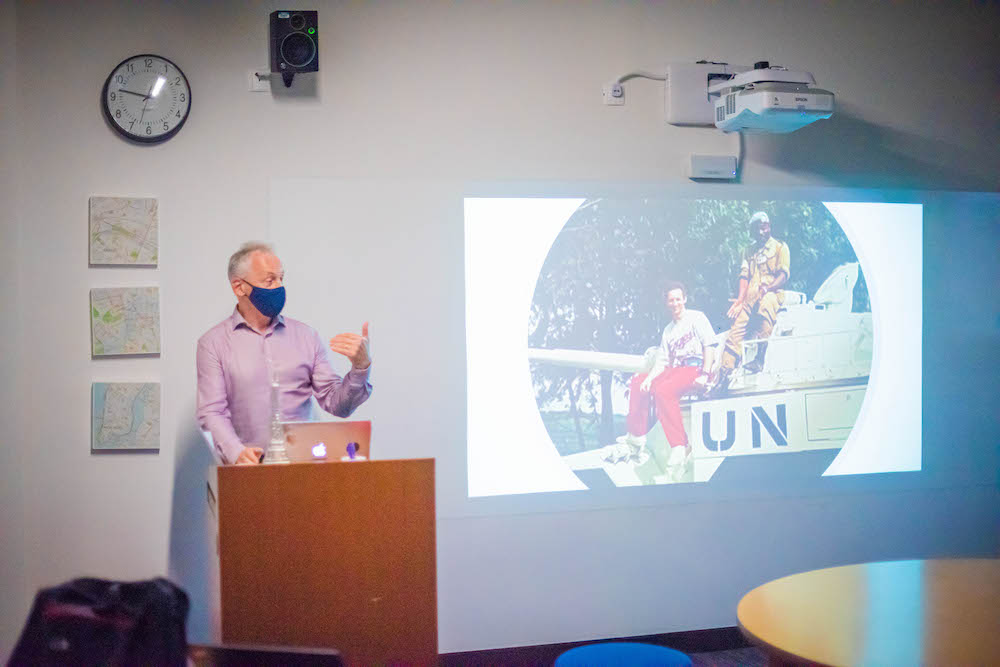




On September 10, 2020, The French Language Arts class, a program for native or nearly native French speakers, welcomed Mr. Marc Vergara, Chief of Communications at United Nations Children’s Fund (UNICEF) Malaysia. The class is currently reading the novel Petit Pays by Gaël Faye, and are studying the genocide in Rwanda as preparatory reading. (Petit Pays or Small Country is written by the French-Rwandan rapper and novelist from The Republic of Burundi, a country bordered by Rwanda to the north). Ms. Christine Bartoli, ISKL’s IB French teacher, is in charge of Language A, a program that started in 2018, with a focus on studying language and literature. This course is for native or nearly native speakers of the language and its students graduate with a bilingual diploma.
As part of our High School world language program, ISKL offers language courses for native or nearly native speakers, and students in Grade 9-12 can take any of our Chinese, Korean, French, or Spanish Language Arts courses. In this course, they develop language and cultural literacy, as well as deepen their proficiency through aural/oral work, language analysis, reading, and writing. Students can explore and analyze aspects of culture through literary and non-literary works in order to develop their skills in a variety of real-life contexts.
At ISKL, we love having special guests in our classrooms who can share their perspectives and experiences, giving our students an opportunity to meet and connect with members of the community. Mr. Vergara, an expert in his field, was an excellent example of this and brought the French language to life as he captivated the class with his riveting tales. The entire one-and-a-half-hour session was fully conducted in French to give the students exposure to literature of their native language.
We are so grateful to Mr. Vergara for taking time out of his busy schedule to come and talk to us. We managed to get a quick interview with him after his presentation, and he even gave our students some career advice. Mr. Vergara has worked at UNICEF for more than 20 years in the field of communication, covering emergencies in the Balkans, the Middle East, Africa, and more, and also worked on development programs in Cambodia, Indonesia, Laos, and Malaysia. See what he had to say in the video below:
In October 1994, Mr. Vergara, who was working for the United Nations Assistance Mission to Rwanda II (UNAMIR II), was sent to Rwanda as a radio producer to prepare broadcasts for the United Nations (UN) radio service. He served as the Chief of French Language Service at UNAMIR Radio for almost two years in Kigali, the capital city of Rwanda. UN peace missions had been setting up such radio programs in post-conflict countries, especially in areas where ethnic and political factions were inciting hate or spreading propaganda. UN-run stations sought to counteract the messages of such broadcasts, especially after extremist leaders used radio in the early 1990s to instigate ethnic hatred and genocide in Rwanda.*
Mr. Vergara had the exact trifecta of skills that were required at the time–someone who could speak English and French, with radio production know-how, and prior knowledge of working in Africa. In this role, he was responsible for collecting information via interviews and broadcast this in English, French, as well as the local language, Kinyarwanda, to everyone in the country who had access to radios. The UN radio station, Radio UNAMIR, was the only radio broadcast service that was allowed after the genocide and served as a much-needed key disseminator of information during that crucial time.**
During the Rwandan genocide of 1994, members of the Hutu ethnic majority murdered as many as 800,000 people, mostly of the Tutsi minority. Started by Hutu nationalists in the capital of Kigali, the genocide spread throughout the country with shocking speed and brutality, as ordinary citizens were incited by local officials and the Hutu Power government to take up arms against their neighbors. By the time the Tutsi-led Rwandese Patriotic Front gained control of the country through a military offensive in early July, hundreds of thousands of Rwandans were dead and 2 million refugees (mainly Hutus) fled Rwanda, exacerbating what had already become a full-blown humanitarian crisis.***
Mr. Vergara arrived in Rwanda shortly after the incident and was witness to the troubling aftermath that followed. He was able to share his invaluable experience with ISKL’s French Language Arts class and give them a first-hand account of what he saw there. This gave the class a completely new perspective on what they had been reading about and helped to add a very realistic, personalized element to the text. The students had many questions for him after the presentation and he was able to answer them in great detail. Once again, thank you to Mr. Vergara for joining us at ISKL for this special presentation.

Sources: *https://www.un.org/africarenewal/magazine/october-2007/broadcasting-peace-radio-tool-recovery
**https://www.mediasupport.org/wp-content/uploads/2012/11/ims-assessment-rwanda-genocide-2003.pdf
***https://www.history.com/topics/africa/rwandan-genocide

